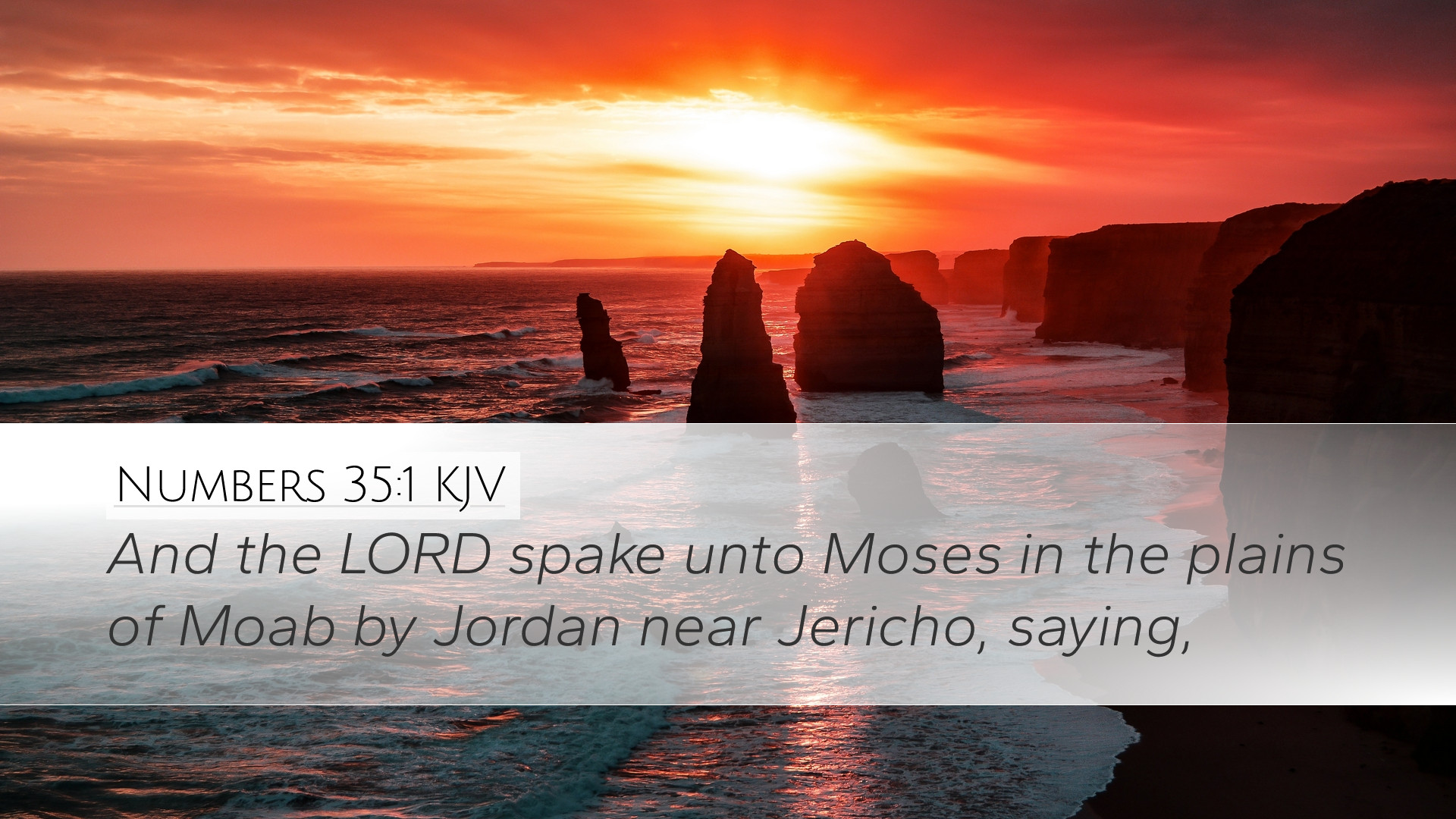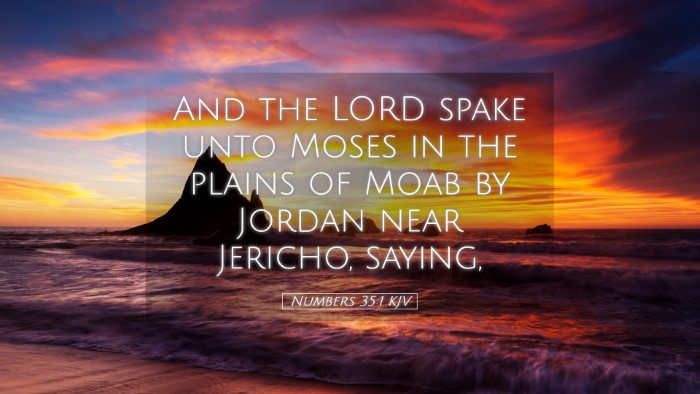Bible Commentary on Numbers 35:1
Numbers 35:1 states: "And the LORD spake unto Moses in the plains of Moab by Jordan near Jericho, saying,"
Contextual Background
The book of Numbers, while often focused on the census and organization of the Israelites, also contains crucial legal and moral instructions for the community. This verse heralds a divine message delivered to Moses, reinforcing God's ongoing communication with His chosen leader.
Divine Communication
The phrase "the LORD spake unto Moses" emphasizes the personal relationship between God and Moses. It underscores the authority with which Moses conveyed God's instructions to the people.
According to Matthew Henry, this passage illustrates God’s care in providing for His people, emphasizing that divine instructions arise in a timely manner as the Israelites prepare to enter the Promised Land.
Albert Barnes comments on the significance of God's voice. The act of speaking indicates direct intervention in the lives of the Israelites, guiding them as they transition into new territory.
Furthermore, Adam Clarke notes the geographical significance of the plains of Moab, as they prepare to cross into Canaan, symbolizing a pivotal moment that requires God’s guidance in the law and structure of their new lives.
Theological Implications
-
Covenantal Relationship: God’s communication reflects His commitment to the covenant made with the Israelites. The instructions that follow this statement are pivotal in establishing societal laws and norms.
-
Leadership and Obedience: Moses as the intermediary highlights the role of leaders in the faith community, obligated to convey God's will and governance.
-
Preparation for Future Living: The laws and directives provided post this divine address aim to prepare the Israelites for just living in their new land, indicating God’s foreknowledge and provision for societal order.
Practical Applications for Today
This verse serves as a reminder for contemporary believers that God communicates in significant ways. Just as Moses was tasked with conveying God’s law, leaders today bear a similar responsibility to lead with clarity and divine principles.
Spiritual Discernment: Pastors and theologians are reminded to seek God’s direction in their teachings and ministry, ensuring that they are echoing the divine instructions given in Scripture.
Furthermore, the provision of law serves as a metaphor for the structure necessary in community life, encouraging modern assemblies to build societies that reflect God’s justice and mercy.
Conclusion
Numbers 35:1 serves not only as a historical account but as a theological cornerstone that permeates into the present day. The character of God as a communicator, the role of leadership, and the necessity for order in community living are emphasized through this solitary yet impactful verse.
Both scholars and laypersons reflect on this verse as an invitation to seek God actively and continuously, appreciating the ongoing narrative of divine engagement with humanity.


